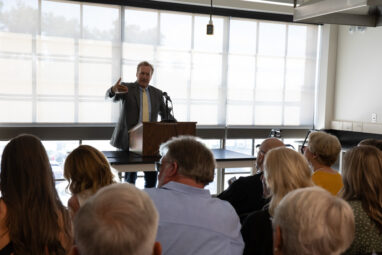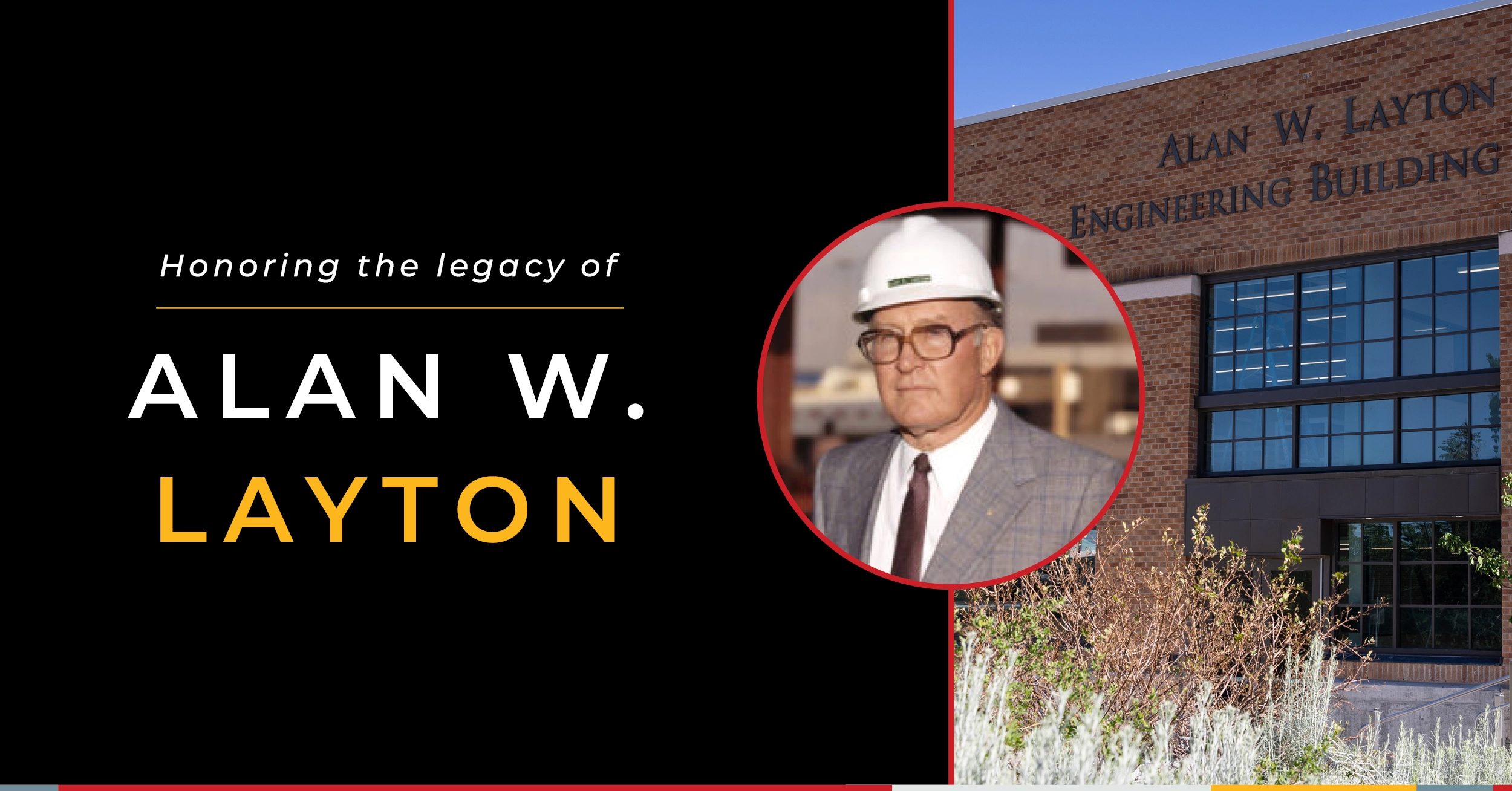The Legacy of the Layton Engineering Building
By now you’ve probably heard the previously known HEDCO Building has been rebranded as the Layton Engineering Building (LEB) as part of a $5.3m renovation project, giving engineering students cutting-edge new labs. You can read more about the renovation here, but today we’d like to talk about the significance of the rededication to Alan. W. Layton and why his life’s story became a legacy for The Department of Civil and Environmental Engineering and the John and Marcia Price College of Engineering.
His life’s story, after all, is remarkable as well as one marked by triumph over extraordinary challenges.
Born in 1917 as the youngest of ten children, Alan W. Layton weathered the challenges of the Great Depression by contributing to his family’s welfare by working in the agriculture and the railroad industries. These early experiences instilled in him a strong work ethic that guided him throughout his career.
In 1937, Alan began his journey as a Civil Engineering student and varsity basketball player at the University of Utah. After his second year, he left the basketball team to prioritize his studies. Alan was passionate about engineering, but unfortunately the outbreak of World War II would disrupt his education. In what would become a trope in his legacy, however, Layton rose above the adversity through his service and sacrifice in the war.
At the rank of captain, Layton led a battery of soldiers into France a mere 42 days after D-Day. His exceptional leadership and consequent trust his men had in him enabled them to prevail across the country, leading them to Belgium, where Layton was severely wounded by a landmine during the Battle of the Bulge. For his leadership, bravery, and his mission’s success, Alan was honored with the prestigious Purple Heart.

Dave Layton, Alan W.’s son and current CEO of Layton Construction, recalls his father’s life story at the Layton Building Dedication in August, 2023.
Following his recovery, Alan returned to the University of Utah to complete his degree. Balancing his responsibilities as a family man with studies proved challenging after his four-year hiatus, and he fell just 15 credit hours short of graduation. Nevertheless, the university later recognized him with distinguished alumni awards, including an honorary Master of Civil Engineering degree.
Despite not graduating after returning from the war, Alan was still determined to make a career for himself in Civil Engineering. In his basement in 1953, he founded Layton Construction Company. His unwavering commitment to diligence, integrity, and relationships formed the bedrock principles that continue to guide the company’s ethos. Over the span of 70 years, Layton Construction Company evolved from its humble beginnings into one of the most esteemed construction firms in the United States, undertaking projects across various industries and locations nationwide.
Alan also left a significant mark on both the construction industry and his community, contributing to organizations like the Great Salt Lake Council, the Boy Scouts of America, and the Associated General Contractors. Together with his wife Mona, he lovingly raised ten children.
Back in 1953, few would have thought it a good idea for a man with no engineering degree and only two employees to start a successful construction company in his basement. Yet today, Layton Construction Company yields more than $380 million in annual revenue, has four wholly owned subsidiaries, and has built more than a handful of the impressive buildings at the U.
Previously used for mere storage, the new Layton Engineering Building now houses cutting-edge labs which will innovative education and produce consummate research. In that sense, the building is truly a testament to Alan W. Layton’s legacy in that is has transformed from undistinguished conditions to an esteemed academic structure.

